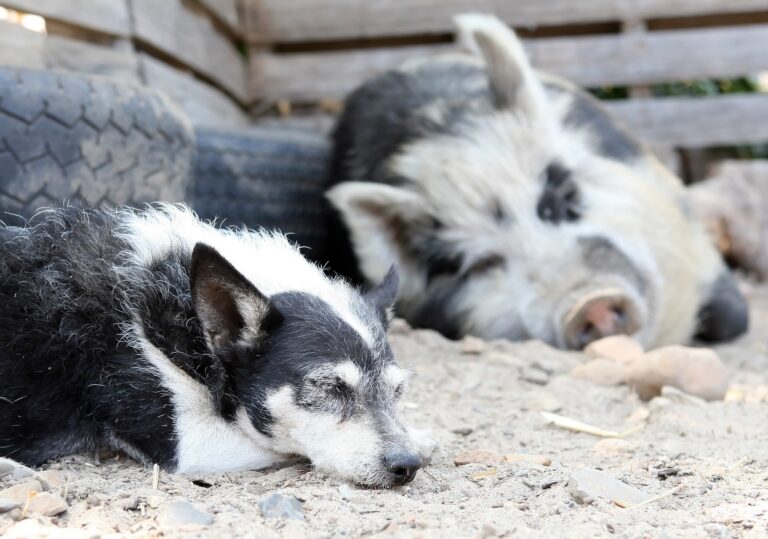As dog owners, we’ve likely witnessed our furry companions engaging in some peculiar behaviors, and one of the most puzzling is when dogs decide to munch on dirt. While it may seem unusual or concerning, there are various reasons why dogs eat dirt, and it’s essential to understand this behavior. In this article, we’ll explore the intriguing motives behind why dogs consume dirt and what you can do to address this habit.
The Curious Habit of Eating Dirt:
- Nutritional Deficiencies: let’s delve deeper into the concept of nutritional deficiencies in dogs and how it relates to their tendency to eat dirt:
Innate Nutrient-Seeking Instinct: Dogs, like many animals, have an innate instinct to seek out essential nutrients they may be lacking in their diet. This behavior has evolved over centuries as a survival mechanism to ensure they receive the necessary nutrients for their overall health.
Missing Nutrients: When dogs sense a deficiency in their diet, they may display unusual behaviors, including eating non-food items like dirt. This is their way of trying to obtain the missing nutrients they need.
Nutritional deficiencies can arise from an imbalanced or inadequate diet, which may lack specific vitamins, minerals, or macronutrients essential for a dog’s well-being.
Nutrient-Rich Soil: Dirt, depending on its composition and location, can contain a variety of minerals and nutrients. Dogs may instinctively recognize that certain types of soil contain minerals like calcium, iron, or potassium, which they may be lacking in their diet.
Calcium, for example, is crucial for bone health, while iron is essential for oxygen transport in the blood. Dogs may eat dirt containing these minerals to address specific deficiencies.
Coprophagy: In some cases, dogs may eat not only dirt but also feces, a behavior known as coprophagy. This behavior can also be linked to nutrient deficiencies, as the undigested food particles in feces may contain valuable nutrients that the dog is attempting to recover.
Addressing Nutritional Deficiencies: To prevent dogs from eating dirt due to nutritional deficiencies, it’s vital for dog owners to provide a balanced and nutritionally complete diet. Commercial dog food products are formulated to meet these requirements, but it’s essential to choose high-quality, age-appropriate food.
Consultation with a veterinarian or a board-certified veterinary nutritionist can help ensure your dog’s diet is tailored to their specific needs.
They can provide guidance on the right type of food, portion sizes, and any necessary supplements.
Regular check-ups with your veterinarian can also help detect and address any nutritional deficiencies or imbalances early on.
In summary, dogs have a natural instinct to seek out missing nutrients when they sense deficiencies in their diet.
This instinct can lead them to eat dirt as a potential source of essential minerals and nutrients like calcium and iron. As responsible pet owners, it’s crucial to provide a well-balanced and nutritious diet for your dog to prevent them from resorting to unconventional sources like dirt to address their nutritional needs. Regular veterinary care and consultation with a professional nutritionist can help ensure your dog’s diet is optimized for their health and well-being.
- Upset Stomach or Gastrointestinal Distress:
Dogs might eat dirt to help soothe an upset stomach or alleviate gastrointestinal discomfort. The earthy texture of dirt can have a calming effect on their digestive system, similar to how humans may consume bland foods like rice when feeling unwell.
- Pica Behavior:
Pica is a term used to describe the consumption of non-food items, including dirt. Dogs with pica may have underlying behavioral or medical issues, such as anxiety, boredom, or certain medical conditions that drive them to ingest substances that are not part of their regular diet.
- Exploration and Play:
Dogs are naturally curious creatures, and they often explore the world through their senses, including taste. Eating dirt may be a form of sensory exploration or play, especially for puppies. It’s similar to how infants put objects in their mouths to learn about their environment.
- Lack of Mental Stimulation:
Boredom can lead dogs to engage in odd behaviors, including eating dirt. When dogs are not mentally stimulated or lack opportunities for play and exercise, they may resort to activities like digging and dirt consumption as a way to pass the time.
- Environmental Factors:
Sometimes, dogs may consume dirt due to environmental factors, such as the smell of recently turned soil or the presence of certain plants. These factors can trigger their natural instincts to investigate and taste their surroundings.
What Can You Do About It?
- Evaluate Diet: Ensure that your dog is receiving a well-balanced diet that meets their nutritional needs. Consult with your veterinarian to rule out any dietary deficiencies.
- Provide Nutritious Supplements: If your dog’s dirt-eating behavior is due to nutritional deficiencies, your vet may recommend dietary supplements to address specific deficiencies.
- Address Gastrointestinal Issues: If your dog frequently consumes dirt to soothe an upset stomach, consult your veterinarian to identify and treat the underlying digestive problem.
- Behavioral Training: If your dog’s dirt-eating is related to boredom or anxiety, engage them in stimulating activities, provide toys, and consider obedience training to redirect their focus.
- Environmental Management: Limit your dog’s access to areas with tempting dirt piles or plants that may be contributing to their behavior.
- Professional Help: In cases of persistent or compulsive dirt-eating, consult a professional dog behaviorist or trainer to address underlying behavioral issues.
In conclusion, while dogs eating dirt may initially appear unusual, it’s essential to recognize that this behavior can stem from various reasons, including nutritional needs, sensory exploration, or medical conditions. By understanding the underlying motives behind your dog’s dirt consumption and taking appropriate steps to address them, you can help ensure your pet’s well-being and discourage this curious habit.


